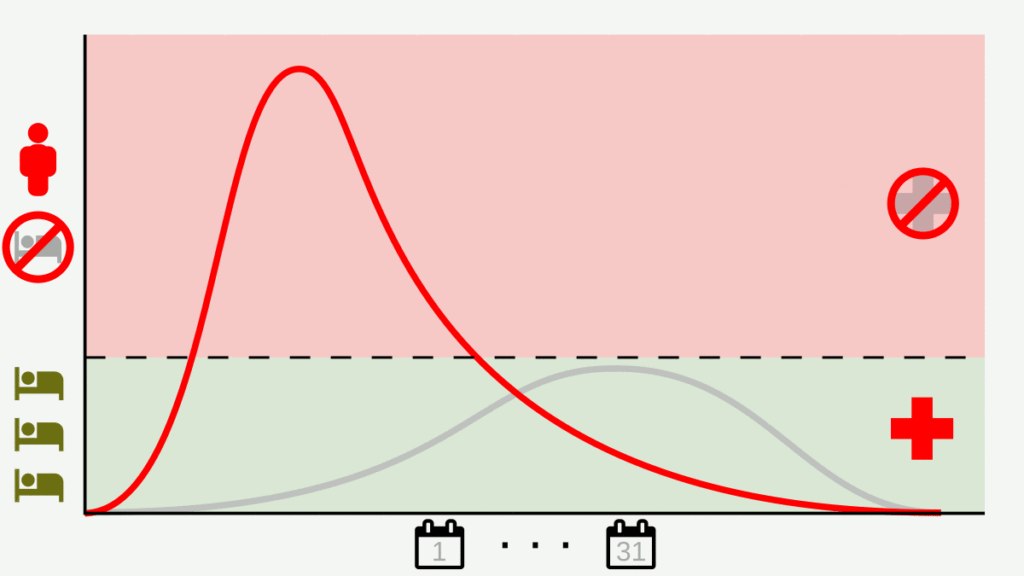Professor Philip Machanick, who is Associate Professor in the Department of Computer Science at Rhodes University, used a computer model created by Cambridge University academics in an attempt to assess how the Coronavirus pandemic could affect South Africans.

The model takes into account the 21-day lockdown that was put in place on 27 March and assumes the lockdown will be lifted at the end of this period. A rapid increase following the lifting ensures that after only five days it is put in place once again – this time for 28 days. The second lockdown is followed by another cycle of no lockdown for five days and then re-imposing it after a more gradual rise in cases.
This model is clearly optimistic, as it shows fewer cases of the virus than the number actually recorded, but it does show that the lockdown slows the increase in cases. This indicates that the lockdown has been partially successful. But Machanick is not convinced that the model is correct, as it is very preliminary work. He suggests that one reason why the actual number of cases is higher than the model predicts could be the lack of data on transmissions by people who do not show symptoms, or people who are asymptomatic.
He says one of the biggest difficulties in applying the Cambridge model is the lack of proper data on the number of asymptomatic people who could have caught the Covid-19 but do not show any of the symptoms associated with the disease. This means they could appear to be perfectly healthy but still transmit the virus to other people who could become ill and even die.
Machanick’s model shows a need to be more aggressive about reducing the spread of Covid-19. He said that in order to achieve this, it is important to make it clear that contracting Covid-19 is not a death sentence, but that slowing the pace of infections will prevent our health system from crashing.
He’s also Chairperson of the Grahamstown Residents Association, which together with the Grahamstown Business Forum and Makana Revive, is promoting a ‘Masks for Makana’ campaign. He says if the main purpose of universal face masks is to prevent people (even those who show no symptoms) from spreading the disease to others, then the masks do not have to be of medical grade.
Machanick pointed out that while there is no conclusive proof, it appears that you cannot get Covid-19 twice. Therefore there is no reason to stigmatise people who have tested positive for the virus.
Once they have quarantined and recovered from the disease, people can rejoin society and lead normal lives.
He stressed that while HIV and Covid-19 are both viruses, they are very different: the majority of people will recover from Covid-19, while according to our current knowledge, HIV stays with you for life.
Machanick reiterated that most people who get Covid-19 are not likely to die – but that the number of deaths will be higher if hospitals are overwhelmed.
On the Rhodes website, Machanick lists his research interests as including bioinformatics – an interdisciplinary field that combines biology with computer science, information engineering, mathematics and statistics.



